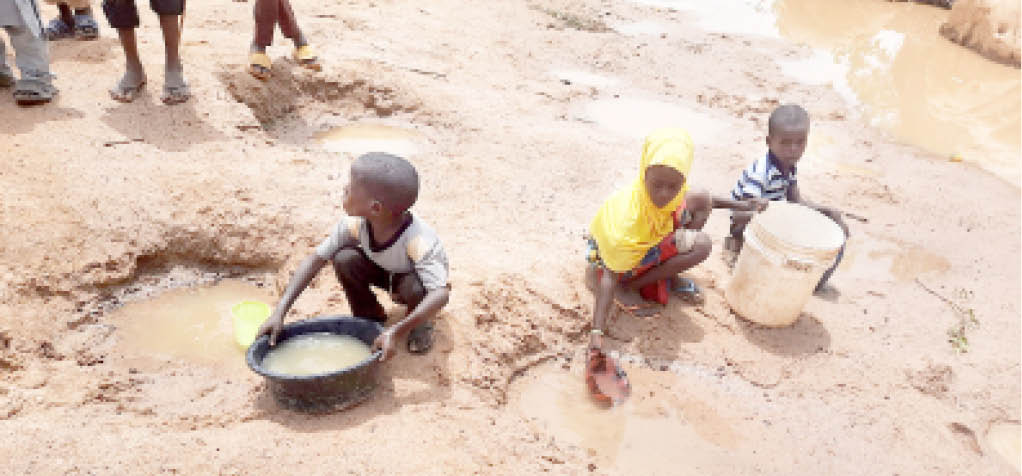Water scarcity in Gombe North
The nonchalant attitude of the authorities concerned as the people suffer extreme water scarcity in some parts of Funakaye, Dukku and Kwami local government areas of Gombe North is a matter of serious concern. Wells and earth dams are the only two sources of water of the affected communities for decades. The wells dry up […]

The nonchalant attitude of the authorities concerned as the people suffer extreme water scarcity in some parts of Funakaye, Dukku and Kwami local government areas of Gombe North is a matter of serious concern.
Wells and earth dams are the only two sources of water of the affected communities for decades. The wells dry up annually in early February.
- NIGERIA DAILY: Killers On Rampage In Plateau, Taraba
- Infracorp: Can Nigeria fix its infrastructural deficit?
This messy situation has remained unchecked in those areas, forcing the people, majority of whom are subsistence farmers, to rely on commercial water tankers, selling their farm produce to buy water.
It costs people living in Komi and Wawa villages of Funakaye Local Government Area N100 to have 25 litres of water for domestic use and their livestock. People living in villages like Kari and Gudu buy it at N150. A commercial water tanker of 45 drums costs N25,000 .
People in other areas with similar problems also pay through their noses to get water for their chores.
The provision of potable water supply, adequate sanitation and hygiene are some of the primary responsibilities of state and local governments.
Recently, it was reported that the State Executive Council has approved N250 million as a counterpart fund for the Partnership for Expanded Water Supply, Sanitation and Hygiene (PEWASH) for Funakaye, Dukku, Kwami and Balanga local councils. Yet, water scarcity continues in all these communities.
Clean water and sanitation are the basic things to be enjoyed by all human beings. But that right is being denied.
The United Nations General Assembly in 2010 recognised the provision of potable water and sanitation as a human right; that everyone is entitled to sufficient, safe, acceptable, continuous and affordable water for personal and domestic use.
It is, therefore, high time the government at both state and local levels took urgent action to solve the problem of scarcity in these communities.
Muhammad Rabiu Jibrin (Mr J) from Gombe State [email protected]
